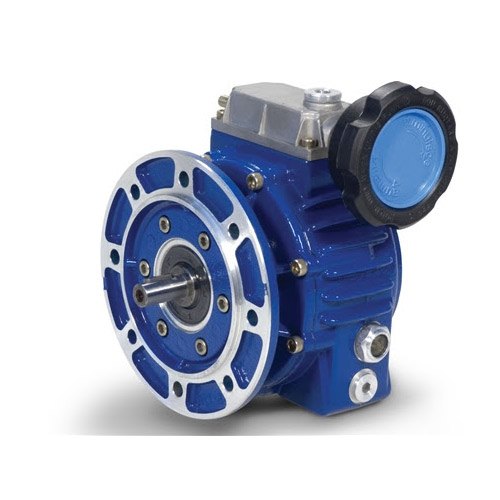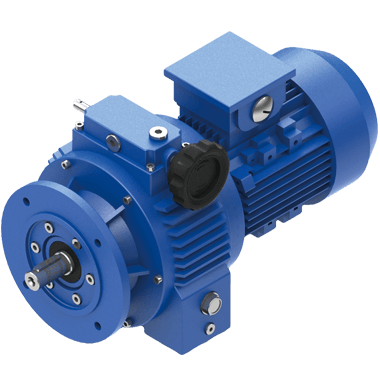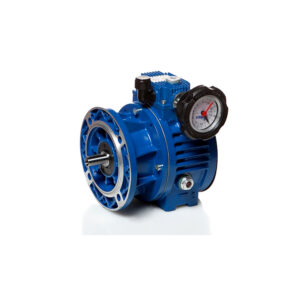Product Description
Speed Reducer Gear Box Wheel Drive Gear Unit Geared Motor Planetary Gearbox Cone-Disk Variator
1. The wide and comprehensive range of N series for industrial applications
2. Low-speed shaft design: Cylindrical with key, splined, hollow with shrink disc or splined hollow shaft
3. Rigid and precise nodular cast iron casing
4. Low noise running, high manufacturing quality standard
5. High and reliable performance, load capacity and low-speed shaft bearing
Please click here for more types!
Application
Our factory
Related Products
For more reducers and mechanical accessories, please click here to view
| Application: | Motor, Electric Cars, Motorcycle, Machinery, Marine, Toy, Agricultural Machinery, Car |
|---|---|
| Function: | Distribution Power, Speed Changing, Speed Reduction |
| Layout: | Wrom |
| Hardness: | Hardened Tooth Surface |
| Installation: | Planetary |
| Step: | Planetary |

Can variators be customized for specific industries or machinery configurations?
Yes, variators can be customized to meet the specific requirements of different industries and machinery configurations. Manufacturers of variators understand that different industrial applications may have unique needs in terms of load characteristics, operating conditions, control system integration, and other factors. As a result, they offer customization options to ensure optimal performance and compatibility. Here are some ways variators can be customized:
1. Load and Torque Ratings:
Variators can be customized to handle specific load requirements and torque ratings. Manufacturers can design and manufacture variators with different torque capacities to match the demands of different machinery or equipment. This customization ensures that the variator can effectively handle the expected load conditions without exceeding its torque limitations or compromising performance.
2. Speed Range:
Depending on the machinery configuration and application requirements, variators can be customized to provide the desired speed range. Manufacturers can adjust the gear ratios and design the variators to operate within specific speed ranges to match the speed requirements of the machinery. This customization allows for precise control and optimization of the machinery’s speed performance.
3. Environmental Considerations:
Variators can be customized to meet specific environmental conditions. Certain industries or machinery configurations may require variators that can withstand harsh environments, such as high temperatures, extreme humidity, or exposure to dust and debris. Manufacturers can incorporate enhanced protection and sealing mechanisms to ensure the variators can operate reliably in these challenging conditions.
4. Control System Integration:
Variators can be customized to integrate seamlessly with different control systems. Manufacturers can adapt the communication interfaces and protocols of the variators to match the specific requirements of the machinery’s control architecture. This customization allows for smooth integration with existing control systems, such as programmable logic controllers (PLCs) or other automation systems.
5. Mounting and Form Factor:
Variators can be customized to accommodate specific mounting configurations and form factors. Different machinery configurations may require variators with specific dimensions, mounting options, or shaft configurations to ensure proper installation and compatibility. Manufacturers can provide custom solutions to meet these specific mounting and form factor requirements.
6. Additional Features and Accessories:
Manufacturers can offer customization options by incorporating additional features and accessories into the variators. These can include specialized connectors, monitoring sensors, remote control capabilities, or specific software functionalities. By tailoring the variators with these additional features, they can better align with the unique needs of the industry or machinery configuration.
7. Compliance with Industry Standards:
Variators can be customized to meet specific industry standards and certifications. Depending on the industry or application, there may be specific regulatory or safety standards that variators need to comply with. Manufacturers can customize the design and manufacturing processes to ensure that the variators meet these standards and certifications.
In conclusion, variators can be customized to suit specific industries or machinery configurations. Manufacturers offer customization options to address factors such as load requirements, speed range, environmental conditions, control system integration, mounting configurations, additional features, and compliance with industry standards. By customizing variators, industries can ensure optimal performance and compatibility with their specific machinery and application needs.

What is the impact of variators on the lifespan of mechanical components in a system?
The impact of variators on the lifespan of mechanical components in a system is a crucial consideration. Variators, such as continuously variable transmissions (CVTs), can have both positive and negative effects on the longevity of mechanical components. Here’s a detailed explanation of the impact of variators on the lifespan of mechanical components:
1. Reduced Wear and Tear:
Variators can contribute to reduced wear and tear on mechanical components compared to traditional transmissions with fixed gear steps. The continuously variable nature of variators allows for smoother and seamless gear ratio changes, eliminating the shock and stress associated with gear shifts in conventional transmissions. This smoother operation can reduce the strain on various components like gears, synchronizers, and clutch packs, potentially extending their lifespan.
2. Improved Power Delivery:
Variators optimize power delivery by continuously adjusting the gear ratios to keep the engine in its most efficient operating range. By operating the engine within its optimal powerband, variators can reduce the load and stress on mechanical components. When the engine operates more efficiently, it can lead to reduced wear on components like pistons, connecting rods, and crankshafts, potentially increasing their lifespan.
3. Enhanced Cooling and Lubrication:
Variators often incorporate advanced cooling and lubrication systems to maintain optimal operating conditions. These systems help manage heat generated during operation and ensure proper lubrication of critical components. Effective cooling and lubrication can prevent excessive heat buildup, reduce friction, and minimize wear on bearings, shafts, and other moving parts. By providing better cooling and lubrication, variators can help extend the lifespan of these mechanical components.
4. Increased Complexity and Component Interdependence:
Variators, especially electronic or computer-controlled ones, can introduce increased complexity and component interdependence within the system. The integration of electronic control systems, sensors, and actuators adds additional components that can potentially fail or require maintenance. The interdependence of these components means that a failure in one part can affect the overall performance and lifespan of the variator and other mechanical components. Proper maintenance, regular inspections, and timely repairs are crucial to mitigate potential issues and ensure the longevity of the system.
5. Maintenance and Service Requirements:
Variators may have specific maintenance and service requirements to ensure their optimal performance and longevity. Regular fluid changes, inspections, and adjustments may be necessary to keep the variator and associated mechanical components in good working condition. Adhering to the manufacturer’s recommended maintenance schedule is important to prevent premature wear and failure of components. Neglecting maintenance can lead to accelerated wear, reduced lifespan, and potential costly repairs.
6. Quality of Design and Manufacturing:
The overall lifespan of mechanical components in a variator system can be influenced by the quality of design and manufacturing. Variators and their associated components should be designed and manufactured to meet specific performance and durability standards. High-quality materials, precise engineering, and stringent quality control can contribute to the longevity of mechanical components. Variators from reputable manufacturers with a track record of reliability and performance are more likely to have a positive impact on the lifespan of mechanical components.
7. Driving Habits and Operating Conditions:
The impact of variators on the lifespan of mechanical components can also be influenced by driving habits and operating conditions. Aggressive driving, excessive loading, and operating the vehicle in extreme conditions can put additional stress on the variator and associated components. Continuous high RPM operation, abrupt throttle inputs, or towing heavy loads can accelerate wear and potentially shorten the lifespan of mechanical components. Operating the vehicle within recommended limits and practicing responsible driving habits can help preserve the longevity of the system.
In conclusion, variators can have both positive and negative impacts on the lifespan of mechanical components in a system. The continuously variable nature of variators can reduce wear and tear, improve power delivery, and enhance cooling and lubrication. However, increased complexity, maintenance requirements, and the quality of design and manufacturing are factors to consider. Additionally, driving habits and operating conditions play a significant role in determining the lifespan of mechanical components. Regular maintenance, proper care, and responsible driving practices are essential to ensure the longevity of the variator system and its associated mechanical components.

Are there specific applications where variators outperform other transmission systems?
Yes, there are specific applications where variators, particularly those used in continuously variable transmissions (CVTs), can outperform other transmission systems. The unique characteristics and capabilities of variators make them well-suited for certain scenarios. Here’s a detailed explanation of the specific applications where variators outperform other transmission systems:
1. Urban Driving and Stop-and-Go Traffic:
Variators excel in urban driving conditions and stop-and-go traffic situations. In congested areas with frequent speed changes, variators offer seamless and continuous gear ratio adjustment. This allows the engine to operate at optimal RPM levels, resulting in improved fuel efficiency and smooth power delivery. The absence of discrete gear shifts eliminates the need to constantly shift gears, providing a more effortless and comfortable driving experience.
2. Hill Climbing and Off-Road Driving:
When it comes to tackling steep inclines or challenging off-road terrains, variators can outperform other transmission systems. The continuous gear ratio adjustment of variators ensures that the engine maintains the appropriate power and torque delivery for climbing hills or traversing rough terrain. This adaptability allows vehicles equipped with variators to maintain momentum and traction, providing superior performance and control in demanding off-road conditions.
3. Smooth and Responsive Acceleration:
Variators offer excellent performance in terms of smooth and responsive acceleration. The stepless gear shifts provided by variators eliminate the jolts or interruptions in power delivery that can occur with traditional gear systems. This seamless acceleration allows for quick and efficient merging onto highways, overtaking other vehicles, or responding to sudden changes in traffic conditions. Variators can deliver a more engaging driving experience by providing instant response to throttle inputs.
4. Hybrid and Electric Vehicles:
Variators have proven to be advantageous in hybrid and electric vehicles. In hybrid vehicles, variators can be used in combination with internal combustion engines and electric motors to optimize efficiency and power delivery. The continuous gear ratio adjustment of variators allows for seamless integration between the different power sources, ensuring that the engine operates within its most efficient range. In electric vehicles, variators can be utilized to provide a smooth and efficient transfer of power from the electric motor to the wheels.
5. High-Performance Sports Cars:
In certain high-performance sports cars, variators can outperform traditional gear systems. Variators offer the advantage of quick and precise gear ratio adjustment, allowing the engine to stay within its optimal power band during aggressive acceleration and high-speed driving. This results in enhanced performance, improved acceleration, and seamless power delivery, making variators an attractive choice for sports car enthusiasts.
6. Fuel Efficiency and Emission Reduction:
Variators, especially those used in CVTs, are known for their potential to improve fuel efficiency and reduce emissions. The continuous gear ratio adjustment ensures that the engine operates at the most efficient RPM, maximizing fuel economy. By avoiding inefficient gear shifts, variators contribute to reduced fuel consumption and lower emissions, making them a preferred choice for eco-friendly and fuel-conscious vehicles.
In summary, variators can outperform other transmission systems in specific applications such as urban driving, stop-and-go traffic, hill climbing, off-road driving, smooth and responsive acceleration, hybrid and electric vehicles, high-performance sports cars, and fuel efficiency-focused applications. The unique characteristics of variators, including continuous gear ratio adjustment and seamless power delivery, make them well-suited for these scenarios, offering advantages in terms of performance, control, and efficiency.


editor by CX 2023-12-08